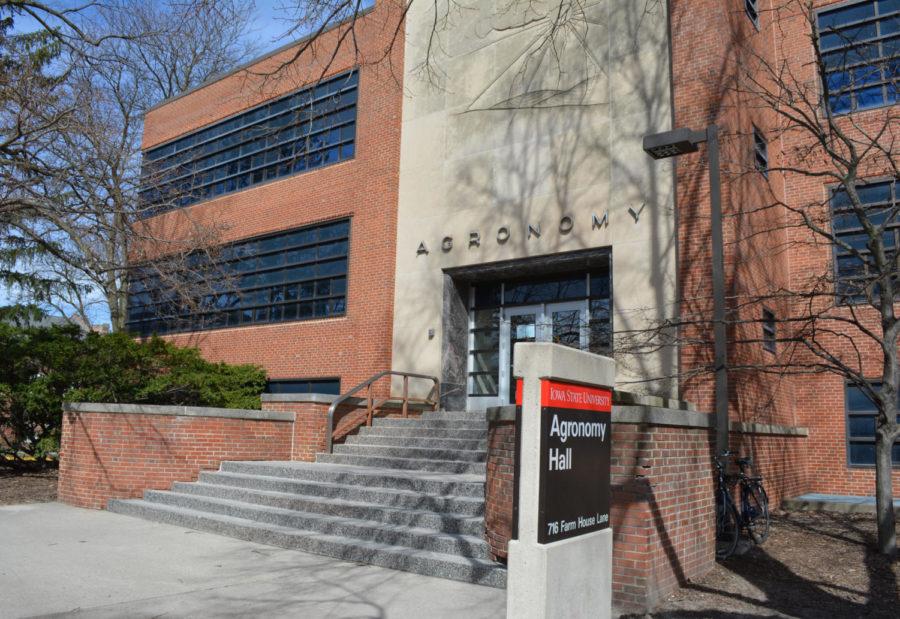Editorial: Differential tuition deserves your attention
Katlyn Campbell/Iowa State Daily
Agronomy Hall
April 13, 2017
Last Friday, the department of agronomy hosted a meeting to discuss a proposed increase of tuition. Wendy Wintersteen, endowed dean of the College of Agriculture and Life Sciences, opened the meeting by providing a background on the proposal. Then David Acker, associate dean of the college, gave a presentation about the idea of differential tuition and why it will be implemented.
The increase will be in the form of “differential tuition.” This means that the tuition students pay will not increase until they reach a certain point in their college career.
The university proposed implementing differential tuition in five areas to the Iowa Board of Regents, which approved the proposal. Starting this summer, juniors and seniors in biology and related majors (CALS and liberal arts and sciences), computer science (LAS), industrial design (design) and natural resources ecology and management (CALS) will pay more than freshmen and sophomores.
The increase will be applied gradually for three years, starting with a $267 increase next semester. The university wants to propose differential tuition for many other majors as well, including agronomy, chemistry and global resource systems.
It is important to note here that the idea of differential tuition has been applied in a number of colleges at Iowa State University, such as the College of Engineering. According to the administration, the university is facing two paths: either it cuts the quality of education or it sustains the quality with the differential tuition.
The cost of high-quality education is increasing, and the cost for the tools, equipment and capital required is also increasing. In addition, the proposal is supposed to allow the university to keep attracting and hiring world-class faculty and keep the faculty-student ratio low.
The implementation of differential tuition will ensure the high value of Iowa State degrees and maintain excellence in advising and monitoring, according to the university. If the proposal gets approved and applied, each department will have a student advisory committee, and there will be an increase in scholarship funds and support for the students.
The meeting was important, giving a platform to hear the students’ thoughts on the idea. Because the students are the ones mainly affected by the the tuition increase, there should be a constructive conversation within the student body to discuss the issue. Some students may agree with the university, while others disagree. And for that, a campus-wide dialogue is needed.

















